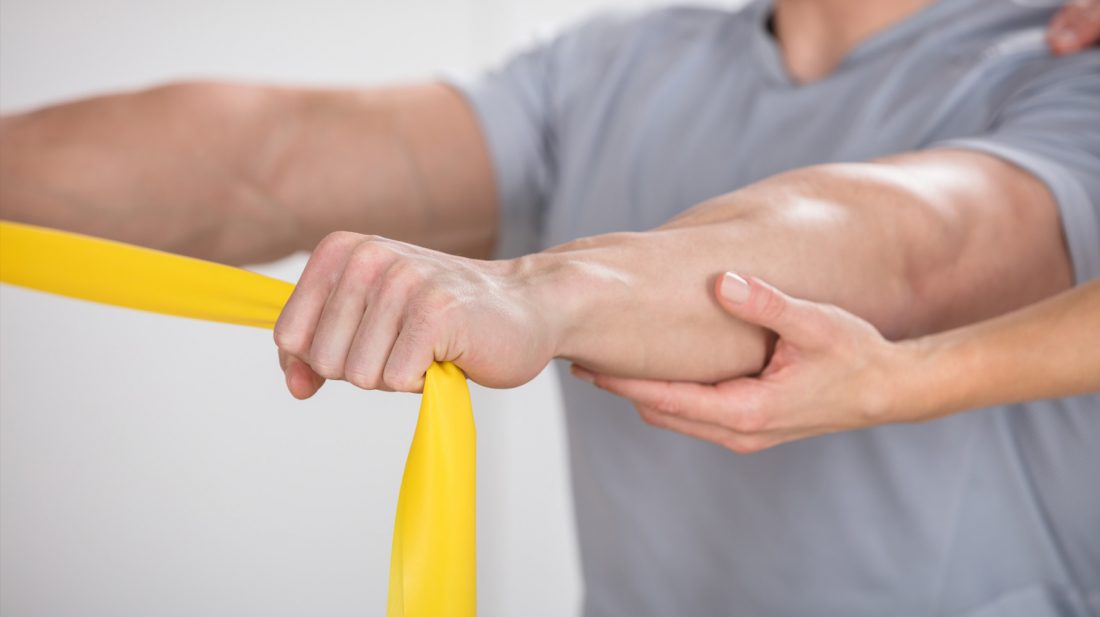Strengthen Rotator Cuff Muscles for a Pain-Free and Active Life
A strong and healthy rotator cuff is essential for maintaining optimal shoulder function and overall well-being. Conversely, a weak rotator cuff can have far-reaching consequences, affecting not only your shoulder but also your ability to perform daily activities and enjoy an active lifestyle. This blog article will go through how to strengthen rotator cuffs to regain movement and live a pain-free and active lifestyle.
The Consequences of a Weak Rotator Cuff
- Increased Vulnerability to Injury: One of the primary consequences of a weak rotator cuff is an increased vulnerability to injury. The rotator cuff plays a crucial role in stabilising the shoulder joint during movements. When these muscles are weak or compromised, the joint becomes less stable, making it more susceptible to injury. This vulnerability extends to both acute injuries, such as sudden strains or rotator cuff tears, and chronic conditions that develop over time due to repetitive stress.
- Pain and Discomfort: A weakened rotator cuff often leads to persistent shoulder pain and discomfort. Everyday tasks that once felt effortless, like reaching for a high shelf or lifting a bag of groceries, can become painful and challenging. Over time, this discomfort can significantly impact your quality of life, limiting your ability to perform essential activities and engage in recreational pursuits
- Limited Range of Motion: Another consequence of a weak rotator cuff is a limited range of motion in the shoulder. You may find it difficult to lift your arm fully, reach across your body, or perform overhead movements. This restriction in mobility can affect not only daily tasks but also your participation in sports, hobbies, and other physical activities.
- Impaired Quality of Life: The cumulative effects of pain, limited mobility, and the potential for recurring injuries can result in a diminished quality of life. A weak rotator cuff can hinder your independence and reduce your ability to enjoy the activities you love. It can also lead to frustration and a sense of helplessness as you struggle to perform even simple tasks without discomfort.
- Decreased Athletic Performance: For individuals who participate in sports or physical activities, a weak rotator cuff can significantly impact athletic performance. Movements that require shoulder strength and stability, such as throwing, swinging, or lifting, may be compromised. This can not only affect your competitive edge but also increase the risk of sports-related injuries.
- Psychological Impact: The consequences of a weak rotator cuff extend beyond the physical realm, often causing psychological distress. Dealing with chronic pain, limitations in daily life, and the fear of further injury can lead to stress, anxiety, and even depression. These emotional and psychological effects can further erode your overall well-being.
How to Identify Weakness in the Rotator Cuff
Identifying a weak rotator cuff can be crucial in preventing injuries. Some signs to look out for include:
- Rotator cuff pain: Persistent shoulder pain, especially during arm movements, can indicate a weak rotator cuff.
- Weakness: Difficulty in lifting objects, even lightweight ones, may suggest muscle weakness in the rotator cuff
- Limited Range of Motion: If you find it challenging to reach or lift your arm fully, it could be a sign of rotator cuff weakness.
Exercises to Strengthen Rotator Cuff Muscles
To prevent injuries and strengthen rotator cuff muscles consider consulting with your physiotherapist about incorporating these rotator cuff exercises into your routine.
- Resistance Band Exercises: Utilise resistance bands to perform external rotations, internal rotations, and shoulder abduction exercises. These target specific rotator cuff muscles and improve their strength and endurance.
- Isometric Exercises: Isometric exercises involve contracting the rotator cuff muscles without joint movement. Hold these positions for 5-10 seconds, gradually increasing the duration as your strength improves.
- Scapular Squeezes: Sit or stand with your arms by your sides. Squeeze your shoulder blades together, then release. This exercise enhances the stability of the shoulder blades, which is essential for rotator cuff function.
- Wall Angels: Stand with your back against a wall and your arms extended to the sides. Slowly raise your arms overhead while keeping your elbows, wrists, and hands in contact with the wall. Lower them back down. This exercise improves shoulder mobility and strengthens the rotator cuff.
- External Rotation with Dumbbells: Hold a lightweight dumbbell in one hand. Keep your elbow at a 90-degree angle and your upper arm against your side. Rotate your forearm outward, then return to the starting position. Perform this exercise with both arms. It strengthens the infraspinatus and teres minor muscles of the rotator cuff.
By understanding the importance of the rotator cuff, recognising signs of weakness, and taking proactive steps to strengthen your rotator cuff under professional guidance, you can reduce the risk of rotator cuff injuries and continue enjoying an active, pain-free life.
If you experience persistent shoulder pain or suspect a rotator cuff injury, seek professional medical advice and evaluation. Orthopaedic surgeons like Dr. Soong Chua can provide expert guidance and personalised care to ensure your shoulder remains in optimal condition, allowing you to lead an active and fulfilling life.




